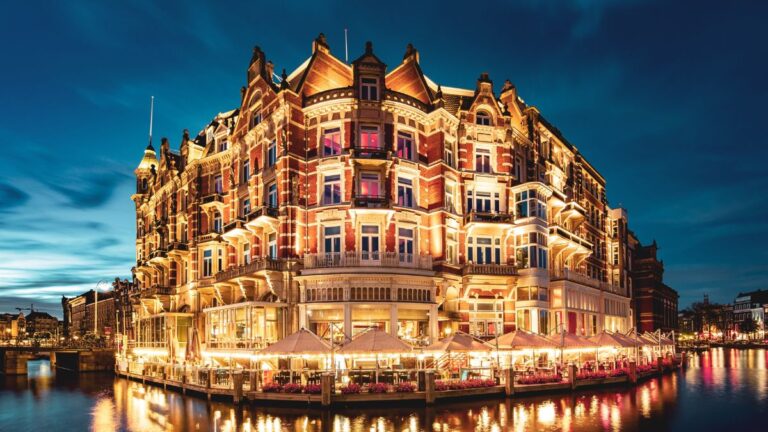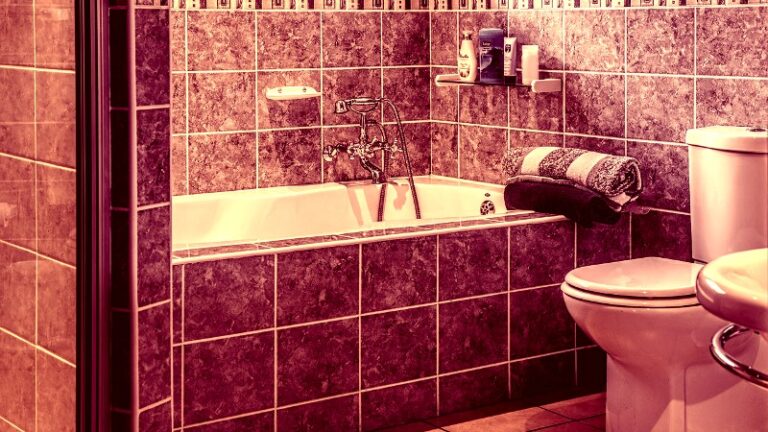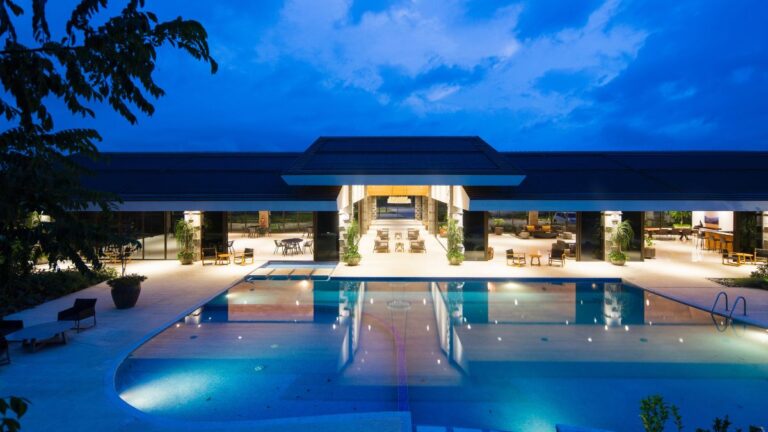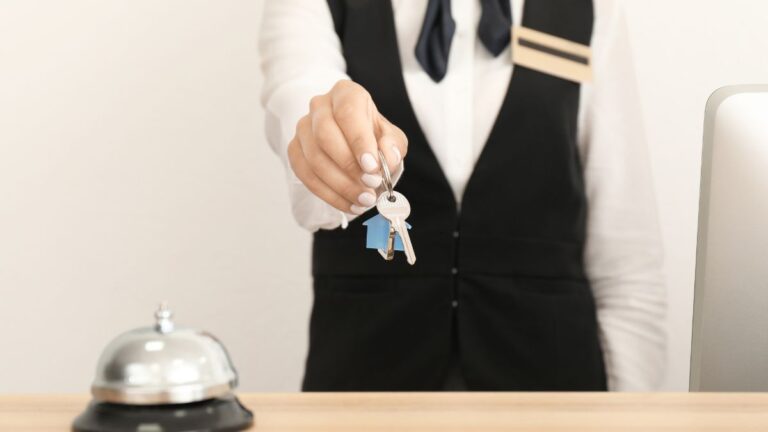Do Hotels Have Generators? Ensuring Power Continuity for Your Stay
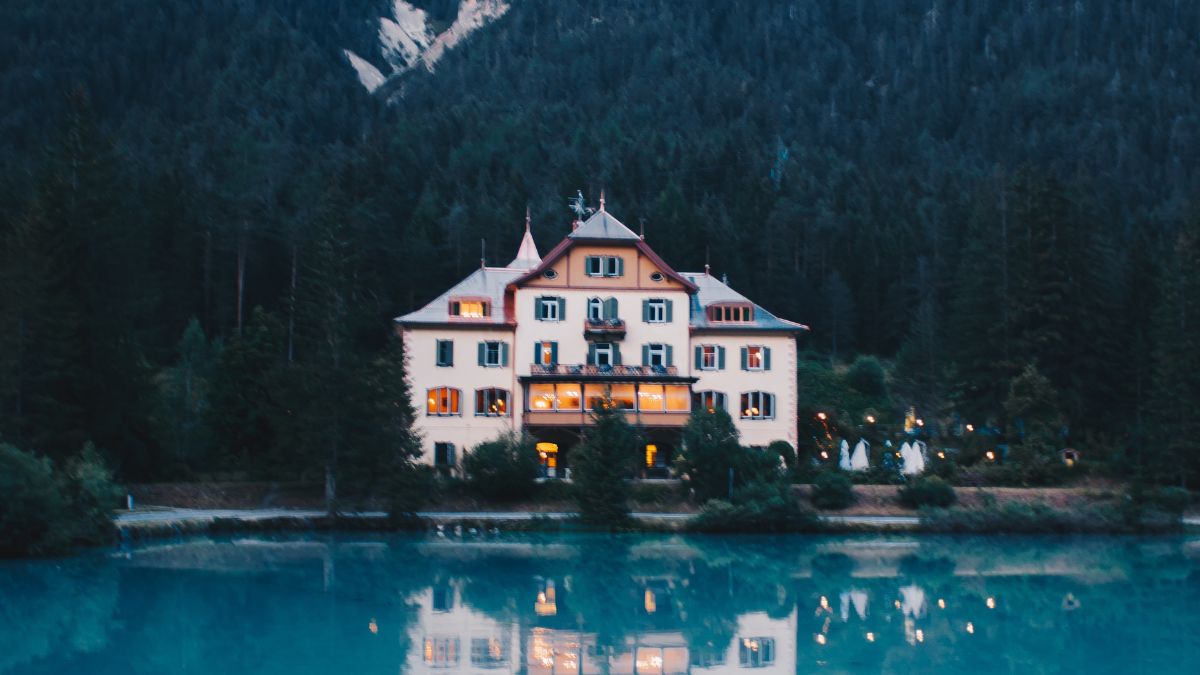
As participants in Amazon Associates and other programs, we earn from qualifying purchases. This comes at no additional cost to you. For more details, see our Affiliate Disclosure.
As we all seek comfort and convenience when traveling, hotels serve as our home away from home. They provide us with essential services from heating and air conditioning to Wi-Fi and elevators. But what happens when the power goes out? Do hotels have generators that ensure an uninterrupted supply of electricity?
This is a question of utmost importance, especially if you are planning a stay in an area prone to power outages or extreme weather conditions. In this article, we delve into the infrastructure of hotels, exploring how they maintain power continuity, and the role of generators in ensuring a seamless stay for every guest.
The Importance of Power Continuity in Hotels
In the modern world, power continuity is not just a luxury but a necessity, particularly in the hospitality sector. Hotels, being one of the cornerstones of this industry, heavily rely on uninterrupted power supply to deliver top-notch services and to maintain optimal guest satisfaction.
Firstly, power continuity ensures that fundamental amenities such as lighting, heating, air conditioning, and hot water supply remain unaffected. This guarantees a comfortable and pleasant stay for the guests, which is a primary objective of any hotel.
Secondly, many guests, particularly business travelers, rely on technology to continue their work during their stay. They expect consistent access to Wi-Fi, the ability to charge electronic devices, and uninterrupted power to support teleconferences or presentations. A disruption in power supply can therefore not only disrupt their work, but also negatively impact their perception of the hotel’s services.
Moreover, hotels often house amenities like restaurants, gyms, and spas which require consistent power to function. Even basic necessities such as operating elevators or keycard systems for room access are dependent on a reliable power supply.
Finally, safety and security systems such as surveillance cameras, fire alarm systems, and emergency lighting are powered by electricity. An interruption in the power supply could compromise the safety and security of the guests, posing potential legal and reputational risks for the hotel.
Do All Hotels Have Generators?
The presence of generators in hotels is largely dependent on the size of the hotel, its location, and local regulations. However, it’s safe to say that most large and midsize hotels, especially in areas prone to power disruptions, do have backup power systems in place, often in the form of generators.
Larger hotels, including those under major chains, generally have robust power backup systems. These facilities often have generators capable of supplying power to the entire building, ensuring the smooth functioning of everything from lights and elevators to heating and air conditioning systems during a power outage.
Smaller hotels, such as bed-and-breakfast establishments or boutique inns, may or may not have generators. In some cases, they might have smaller, portable generators that can provide power to essential systems but might not cover the entire property.
In regions prone to natural disasters or frequent power outages, local building codes and safety regulations often require hotels to have backup power sources. On the other hand, in areas with stable power grids and low risk of environmental disruptions, hotels might not have generators, as the need for backup power is significantly reduced.
Understanding the Role of Generators in Hotels
The role of generators in hotels is pivotal, providing an immediate source of electrical power in case of any disruption in the main power supply. Generators act as a lifeline for hotels, ensuring that their day-to-day operations and services are not hindered even during an outage.
- Providing Essential Services: Generators are critical in keeping the lights on, operating elevators, powering heating and air conditioning systems, and ensuring the constant supply of hot water. This uninterrupted service provision is essential for maintaining guest comfort and satisfaction.
- Keeping Businesses Running: Many hotels house restaurants, bars, and conference facilities that require consistent power to function. With a generator, these businesses can continue their operations smoothly, ensuring guests and patrons are not inconvenienced.
- Ensuring Connectivity: In today’s digital age, a steady power supply for Wi-Fi connectivity and device charging is crucial. Generators provide this much-needed continuity, ensuring guests stay connected to the outside world, which is particularly vital for business travelers.
- Maintaining Safety and Security: Generators play a critical role in powering security systems such as CCTV cameras, electronic door locks, and emergency lighting. During power outages, these systems become even more important for the safety and security of the guests and the property.
- Compliance with Regulations: In many regions, it’s a legal requirement for hotels to have backup power systems. Generators help hotels comply with these regulations and standards, avoiding potential fines and reputational damage.
- Preserving Food and Beverage Supplies: Power continuity is vital for the refrigeration and preservation of food and beverages in the hotel’s kitchens and bars. Generators help avoid spoilage during power outages, preventing financial losses and potential health hazards.
The role of generators in hotels extends beyond just acting as a backup power source. They are integral to a hotel’s operation, contributing significantly to guest satisfaction, safety, business continuity, and legal compliance.
Types of Generators Used in Hotels
Hotels, depending on their size, location, and power needs, may utilize different types of generators. The choice of generator is often dictated by factors such as the electrical load required, availability of fuel sources, noise restrictions, and budget considerations. Here are some common types of generators used in the hotel industry:
- Diesel Generators: Diesel generators are widely used in the hotel industry due to their efficiency and reliability. They are capable of handling large power loads, making them suitable for big hotels with high power demand. They also have the advantage of a longer lifespan and require less maintenance compared to other types.
- Natural Gas Generators: These generators are becoming increasingly popular as they run on natural gas, which is a cleaner-burning fuel. They offer the advantage of a quieter operation, which can be a key consideration for hotels in urban or residential areas. However, they are usually more expensive and require a connection to a gas line, which may not be available in all locations.
- Propane Generators: Propane generators are often used in areas where natural gas is not easily available or in smaller establishments. They are quieter and emit fewer pollutants compared to diesel generators. However, they typically have a higher fuel cost and may require more storage space for the propane tanks.
- Bi-fuel Generators: Bi-fuel generators can run on two types of fuel, typically diesel and natural gas. They provide flexibility in terms of fuel usage and can switch between the two fuel types, providing an added layer of reliability.
- Portable Generators: Smaller hotels or establishments in areas with rare power disruptions may opt for portable generators. These are less expensive and can be moved to different areas as needed. However, they typically have a smaller power output and are more suitable for powering essential systems rather than the entire building.
Choosing the right type of generator is a crucial decision for a hotel. It involves careful consideration of various factors including power requirements, environmental impact, noise levels, maintenance needs, fuel availability, and overall costs. A suitable generator ensures power continuity, thereby contributing to a hotel’s ability to provide a seamless service to its guests.
How Hotels Prepare for Power Outages
Power outages can occur due to various reasons such as extreme weather conditions, equipment failures, or disruptions in the local power grid. These interruptions can significantly impact a hotel’s operations, disrupting essential services and affecting guest experience. As such, hotels take a variety of steps to prepare for power outages, ensuring seamless service continuity and safety for their guests.
- Investing in Backup Power Systems: The first line of defense against power outages is having a backup power system, typically a generator, that can provide electricity when the main supply fails. The size and type of generator depends on the hotel’s power requirements, with larger hotels often opting for high-capacity diesel or natural gas generators.
- Routine Maintenance and Testing: Hotels regularly maintain and test their generators to ensure they’re ready to function when needed. This involves checking the generator’s components, ensuring adequate fuel supply, and running the generator periodically to test its operation.
- Establishing Power Outage Procedures: Hotels prepare comprehensive procedures to follow during power outages. These guidelines detail the steps staff should take when the power goes out, such as switching to the backup power supply, communicating with guests, and managing hotel services during the outage.
- Training Staff: Staff members are trained to handle power outages effectively. This includes understanding the power outage procedures, knowing how to operate the generator and other emergency equipment, and learning how to communicate with guests during an outage.
- Emergency Lighting Systems: Hotels install emergency lighting systems that automatically activate during a power outage. These systems provide illumination in key areas like corridors, stairwells, and exits, ensuring guest safety and security.
- Uninterruptible Power Supply (UPS) Systems: Some hotels use UPS systems to protect critical equipment like computer systems and servers from power interruptions. UPS systems provide immediate, short-term power when the main supply fails, preventing data loss and equipment damage.
- Coordinating with Local Authorities: Hotels often coordinate with local authorities and power companies to stay informed about potential power disruptions, allowing them to prepare and respond effectively.
By taking these steps, hotels ensure they are well-prepared for power outages, minimizing their impact on hotel operations and guest experience. Preparation and effective response to power outages not only helps maintain the quality of service but also upholds the hotel’s reputation and guest trust.
Pros and Cons of Generators in Hotel Infrastructure
Generators play an essential role in hotel infrastructure, providing backup power during outages and ensuring that critical operations continue smoothly. However, like any system, they have their pros and cons.
Pros of Generators in Hotel Infrastructure:
- Continuity of Service: The most significant advantage of having generators is the ability to maintain services without interruption. In the event of a power outage, generators ensure that essential services like lighting, heating, air conditioning, and internet access remain operational.
- Safety and Security: Generators keep security systems, such as CCTV cameras and electronic door locks, running during power outages. They also power emergency lighting systems, ensuring the safety of guests and staff.
- Compliance with Regulations: In many regions, regulations require hotels to have backup power sources. Having a generator helps hotels meet these requirements and avoid potential fines or penalties.
- Business Continuity: With a generator, hotels can continue their business operations, like running restaurants, conference facilities, or spas, even during power disruptions.
- Preserving Food Supplies: Generators enable the continued operation of refrigeration systems, preventing food and beverage supplies from spoiling during power outages.
Cons of Generators in Hotel Infrastructure:
- High Initial Costs: Generators, particularly large-capacity models, can be expensive to purchase and install. These costs may be prohibitive for smaller hotels or those with tight budgets.
- Maintenance and Operational Costs: Generators require regular maintenance to ensure they function correctly when needed. This includes tasks like routine inspections, component replacement, and fuel costs, which can add up over time.
- Noise Pollution: Generators, especially diesel ones, can be noisy when running. This can be a disadvantage in urban or residential areas, where noise restrictions may apply.
- Environmental Impact: Generators, particularly those running on fossil fuels, emit greenhouse gases. While newer models and those running on natural gas or propane are cleaner, they still have some environmental impact.
- Space Requirements: Large generators require significant space for installation, which may be a challenge in urban hotels with limited space.
While generators come with certain drawbacks, the advantages they offer, particularly in terms of service continuity and safety, often outweigh these disadvantages. For most hotels, having a reliable backup power system is not just an option but a necessity.

